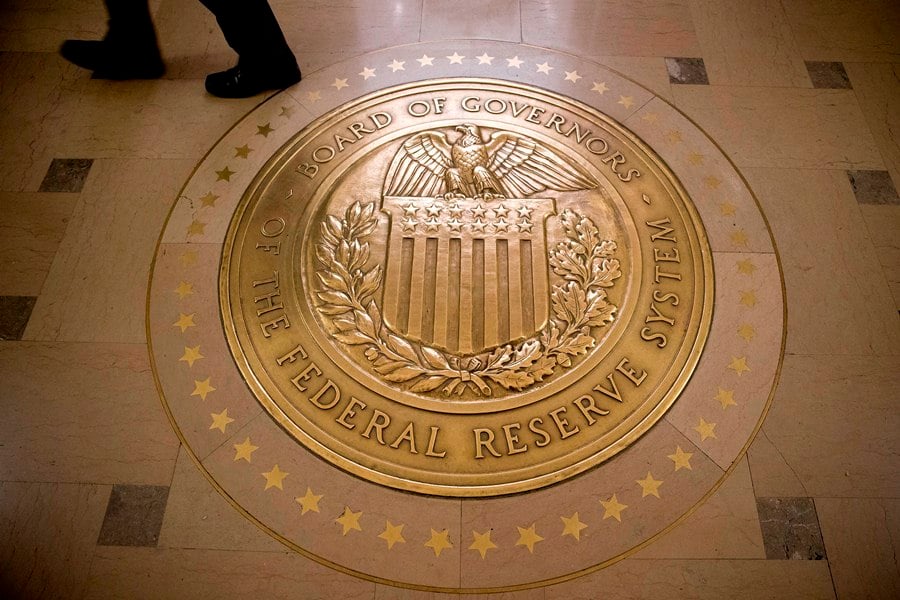The world's biggest money manager is warning bond investors they're not prepared for the Federal Reserve to raise interest rates.
BlackRock Inc., the world's biggest money manager, is warning bond investors they're not prepared for the Federal Reserve to raise interest rates.
Traders see about a 48% chance the Fed will act this year, down from 93% on Jan. 1, futures show. A rout in stocks and oil led investors to abandon bets on higher rates, even after policy makers indicated in December they'd move four times in 2016. Now equities and crude are showing signs of stabilizing, and economists project the central bank's preferred inflation gauge on Feb. 26 will show a pickup.
“Will the central bankers wait out all of 2016?” Russ Koesterich, the global chief investment strategist for New York-based BlackRock, wrote in a report Monday. “Probably not, yet this is exactly what the futures market is suggesting. Inflation has strengthened, suggesting that the central bank may not be quite as dovish as the market expects.” The company has $4.6 trillion in assets.
http://www.investmentnews.com/wp-content/uploads/assets/graphics src="/wp-content/uploads2016/02/CI104013223.PNG"
U.S. 10-year note yields rose three basis points, or 0.03 percentage point, to 1.78% as of 8:12 a.m. New York time, according to Bloomberg Bond Trader data. The 1.625% security due in February 2026 dropped 7/32, or $2.19 per $1,000 face amount, to 98 5/8.
Twelve months ago, Mr. Koesterich said the outlook for a Fed rate increase in 2015 was “some chance for June, probably September, if not, you know certainly by the end of the year.” The central bank acted in December.
INFLATION GAUGE
The Fed's preferred gauge is expected to show inflation accelerated to 1.1% in January from 12 months earlier, compared with 0.6% in December, based on a Bloomberg survey of economists before the report at the end of the week. The last time the measure was above the central bank's 2% target was in 2012. Consumer prices in the U.S. excluding food and fuel increased in January by the most in four years, government data showed last week.
Traders got a reminder of the global turmoil that may keep the Fed on hold Tuesday. China weakened its currency, reinforcing speculation the world's second-largest is economy is slowing and sending 10-year yields down as much as three basis points.
“We did scale back our expectations early this month to expect two hikes from the Fed this year, in June and December, from three previously,” said Richard Kelly, the global head of strategy at Toronto Dominion Bank in London. “The sustained financial volatility and tightening in financial conditions effectively delivered the tightening the Fed was going to implement through higher rates.”
BOND BULLS
The U.S. 30-year bond yield may fall one percentage point from the current 2.60%, according to Prudential Plc's Asian asset management unit Eastspring Investments. Nicholas Ferres, who oversaw purchases of the bonds before the Fed moved at the end of last year, sees the yield dropping below 2% to a record.
Mr. Ferres said the funds he oversees hold more of the bonds than recommended in the benchmark he follows, the biggest overweight position since the global financial crisis in 2008.
The bulls are in the minority. The 10-year yield will climb to 2.41% by year-end, according to a Bloomberg survey of economists with the most recent forecasts given the heaviest weightings.







